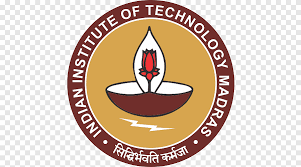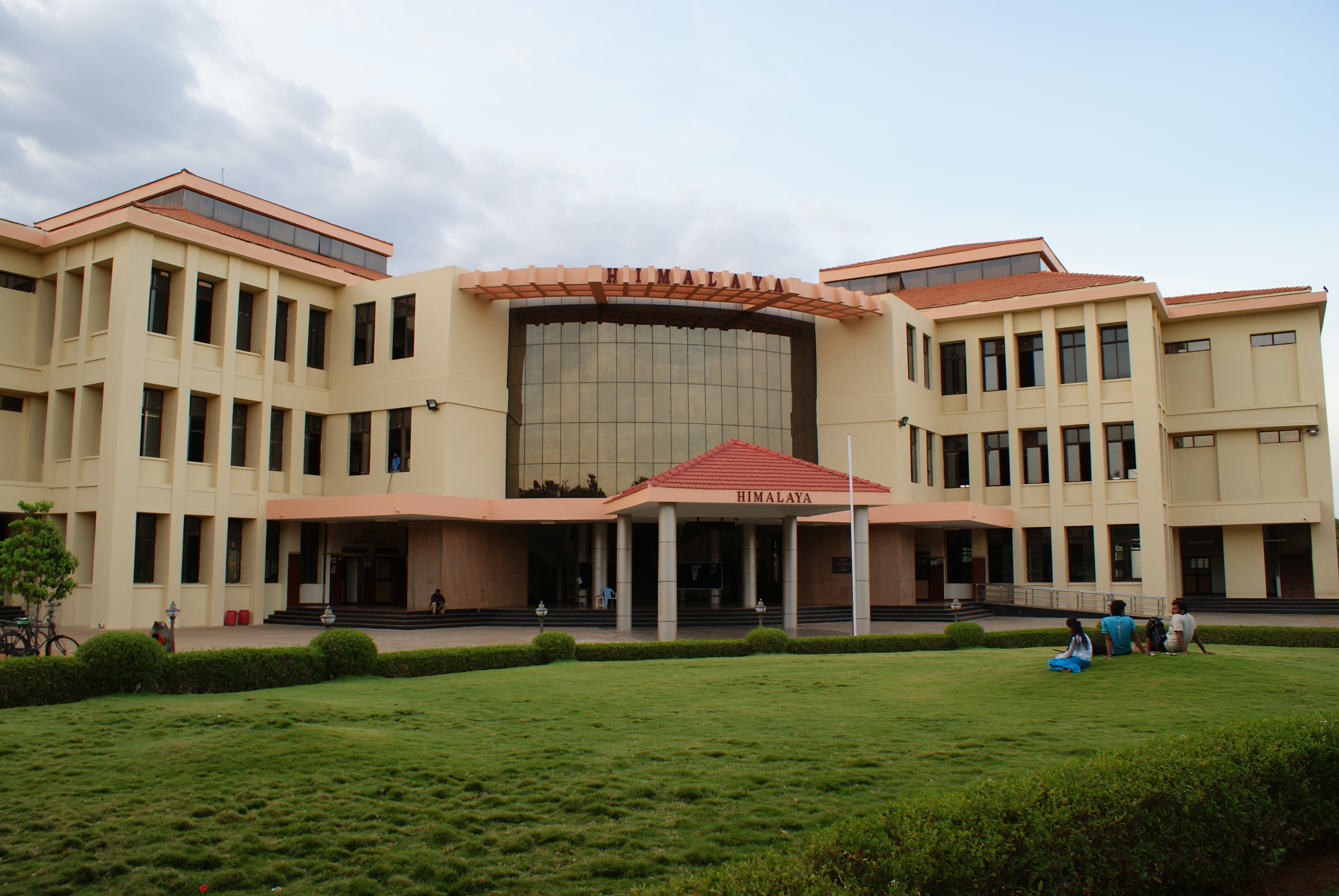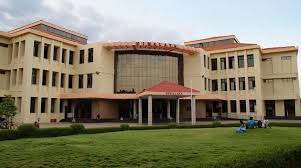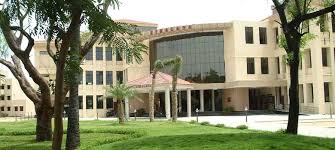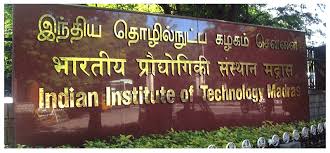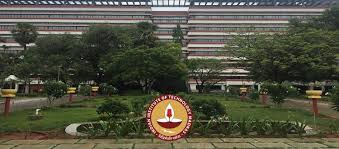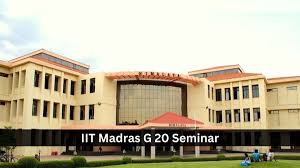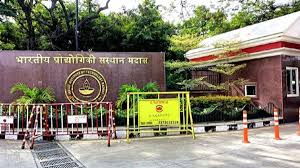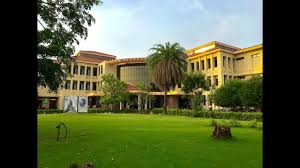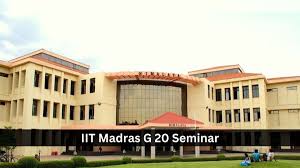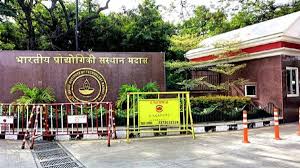- Overview
- Courses & Fees
- Admissions
- Placements
- Infrastructure
- Gallery
Indian Institute of Technology Madras IITM, established in 1959, is one of the leading engineering institutions of the world located in Chennai, India, and was started with the technical collaboration of the then-West German government. Based in Chennai, Tamil Nadu is highly acclaimed for its research outlook, quality education, and dynamic ambiance. The University spans over 620 acres in a rich environment with various plants and animals.
The IIT Madras offers B.Tech, M.Tech, M.Sc, and PhD programs in engineering, sciences, humanities and social sciences. This institute focuses on the provision of technical education accompanied by innovations and interdisciplinary research. Its faculty is made up of scholar-teachers and professionals who contribute immensely to the quality and production of knowledge in their respective fields. The institute has the most modern laboratories, research centers, and facilities that create an environment more suited to innovation and entrepreneurship. The technology incubation and the Research Park at IIT Madras offer a common environment for exploiting cooperation between the industry and academia aimed at the development of startups and technologies.
Other than metric and software fests such as Saarang and Shaastra, several other festivals take place within the campus and students from all over the country participate in them which makes the cultural life in the college more rich and colorful. IIT Madras alumni have made a great impact in various nations in the capacity of technocrats and corporate heads thus establishing the institute’s reputation in technical education and research.
| Course | Fees | Eligibility |
| B.Tech | ₹2.15 Lakhs (1st Year Fees) | 10+2 with 75% + JEE Advanced |
| M.Tech | ₹24,600 (1st Year Fees) | Pass in Graduation + GATE |
| Ph.D. | ₹15,650 (1st Year Fees) | Postgraduation |
| B.Tech + M.Tech | ₹2.15 Lakhs (1st Year Fees) | 10+2 with 75% |
| EMBA | ₹6.5 Lakhs (1st Year Fees) | Graduation with 60% |
| M.Sc | ₹20,400 (1st Year Fees) | Graduation with 55% + IIT JAM |
| BS + MS | ₹2.1 Lakhs (1st Year Fees) | 10+2 |
The admission process for IIT Madras primarily involves the following steps.
Website : https://www.iitm.ac.in/
Undergraduate Programs (B. Tech)
JEE Main and JEE Advanced
JEE Main: First, they have to clear the Joint Entrance Examination (JEE) Main conducted by the National Testing Agency commonly known as NTA.
JEE Advanced: Candidates who have passed JEE Main can write JEE Advanced. Only the cream layer of students from JEE Main is eligible to write JEE Advanced which is conducted by one of the IITs on a rotational basis.
JEE Advanced Results:
JEE Advanced: is conducted and based on the scores of that examination ranks are prepared and those who secured ranks according to cutoff marks are only eligible for admissions.
JoSAA Counseling: Both the HR and HRM participate in the JoSAA counseling where they can choose the institutes and the branch they want according to their ranks and the availability of the seats.
It has Masters Programs (M. Techno, M. S., PhD)
GATE:
For M. Tech admissions, the candidates have to appear and qualify in the Graduate Aptitude Test in Engineering, joined by IITs and the Indian Institute of Science (IISc).
Application and Interview: The companies that participate in the recruitment process give appointments to the students who have valid scores in GATE and can apply to the IIT Madras directly. Depending on these results they may be invited for an interview or a written examination.
Final Selection:
The final is made depending on the GATE scores, group discussions/interviews or some kind of written test or assessment, and academic background.Other Programs MBA, M. A.
CAT
To gain admission to MBA in India one has to clear the Common Admission Test –CAT organized by the Indian Institutes of Management –IIMs.
HSEE:For M. A. programs, the candidate has to pass the Humanities and Social Sciences Entrance Examination (HSEE) for which IIT Madras provides the test.
Application and Interview:
Applicants should meet the laid down criteria and must apply to the relevant departments where they will be subjected to an interview or written exam.
The admission for the courses is however very competitive, and students with the best scores in the respective entrance examinations and interviews and the best candidate results get admitted to the courses of their respective choice.
The placement process at IIT Madras is organized by the Institute's Career Development Centre (CDC). The process typically involves the following steps:
Pre-Placement Talks (PPTs):
Companies conduct PPTs to introduce their organizations, work culture, job roles, and growth prospects to the students.
Registration:
Interested students register for the companies they wish to apply for, based on their eligibility and interest.
Application Submission:
Students submit their resumes and other required documents. Companies may also conduct initial screening based on academic performance, projects, and extracurricular activities.
Selection Process:
The selection process usually involves several stages such as aptitude tests, group discussions, technical interviews, and HR interviews. These stages vary depending on the company and the role being offered.
Job Offers:
After the selection process, companies extend job offers to the selected candidates. Students have the option to accept or decline the offer.
Final Placements:
The final placements typically occur in two phases: the first phase in December and the second phase in January. Some companies also visit for internships, which often lead to pre-placement offers (PPOs).
Placement Highlights (Recent Years):
High Placement Rate: IIT Madras consistently achieves a high placement rate, with a significant percentage of students securing job offers.
Top Salary Packages: The highest salary packages often reach up to INR 1-2 crore per annum for international offers, while domestic packages can be in the range of INR 40-50 lakhs per annum.
Diverse Job Profiles: Students receive offers in various sectors, including core engineering, IT, finance, consulting, research and development, and startups.
List of Recruiters
- Microsoft
- Amazon
- Apple
- Oracle
- IBM
- Infosys
- Tata Consultancy Services (TCS)
- Wipro
- Accenture
- Cisco
- Adobe
- Salesforce
- McKinsey & Company
- Boston Consulting Group (BCG)
- Bain & Company
- Goldman Sachs
- JPMorgan Chase
- Morgan Stanley
- Deloitte
- Ernst & Young (EY)
- KPMG
- PricewaterhouseCoopers (PwC)
- Credit Suisse
- Barclays
- Deutsche Bank
- Larsen & Toubro
- General Electric (GE)
- Tata Steel
- Schlumberger
- Shell
- Reliance Industries Limited (RIL)
- Siemens
- Bosch
- Cummins
- Hindustan Unilever Limited (HUL)
- Bharat Heavy Electricals Limited (BHEL)
- Honeywell
- Indian Space Research Organisation (ISRO)
- Defence Research and Development Organisation (DRDO)
- Intel
- Qualcomm
- Texas Instruments
- Samsung Research Institute
- Ericsson
- NVIDIA
- Micron Technology
- Flipkart
- Ola
- Zomato
- Paytm
- Swiggy
- OYO
- Byju's
- Cure.fit
- UrbanClap
- Razorpay
- Procter & Gamble (P&G)
- Hindustan Aeronautics Limited (HAL)
- Maruti Suzuki
- Mahindra & Mahindra
- Daimler
- Ford
- TVS Motors
- Ashok Leyland
- Asian Paints
IIT Madras boasts world-class infrastructure to support its academic, research, and extracurricular activities:
1. Academic Facilities:
Classrooms and Lecture Halls: Equipped with modern teaching aids, audio-visual systems, and comfortable seating arrangements.
Laboratories: State-of-the-art labs with advanced equipment for research and experimentation in various fields of science and engineering.
Libraries: The Central Library houses a vast collection of books, journals, and digital resources, offering a conducive environment for study and research.
2. Research Centers:
IITM Research Park: Facilitates collaboration between industry and academia, promoting innovation and entrepreneurship.
Centers of Excellence: Specialized centers focusing on cutting-edge research in areas such as nanotechnology, artificial intelligence, and renewable energy.
3. Hostels and Accommodation:
Residential Facilities: On-campus hostels provide comfortable and secure accommodation for students, with amenities like Wi-Fi, mess, and recreational areas.
Guest Houses: For visiting faculty, researchers, and guests.
4. Sports and Recreation:
Sports Complex: Facilities for various sports including cricket, football, basketball, tennis, swimming, and athletics.
Gymnasiums and Fitness Centers: Equipped with modern fitness equipment for students and staff.
5. Student Life and Clubs:
Cultural and Technical Clubs: Various clubs and societies focus on music, dance, drama, literature, robotics, coding, and more.
Festivals: Saarang (cultural fest) and Shaastra (technical fest) are major annual events attracting participants from across the country.
The comprehensive infrastructure at IIT Madras supports the holistic development of students, fostering an environment of learning, innovation, and growth.



